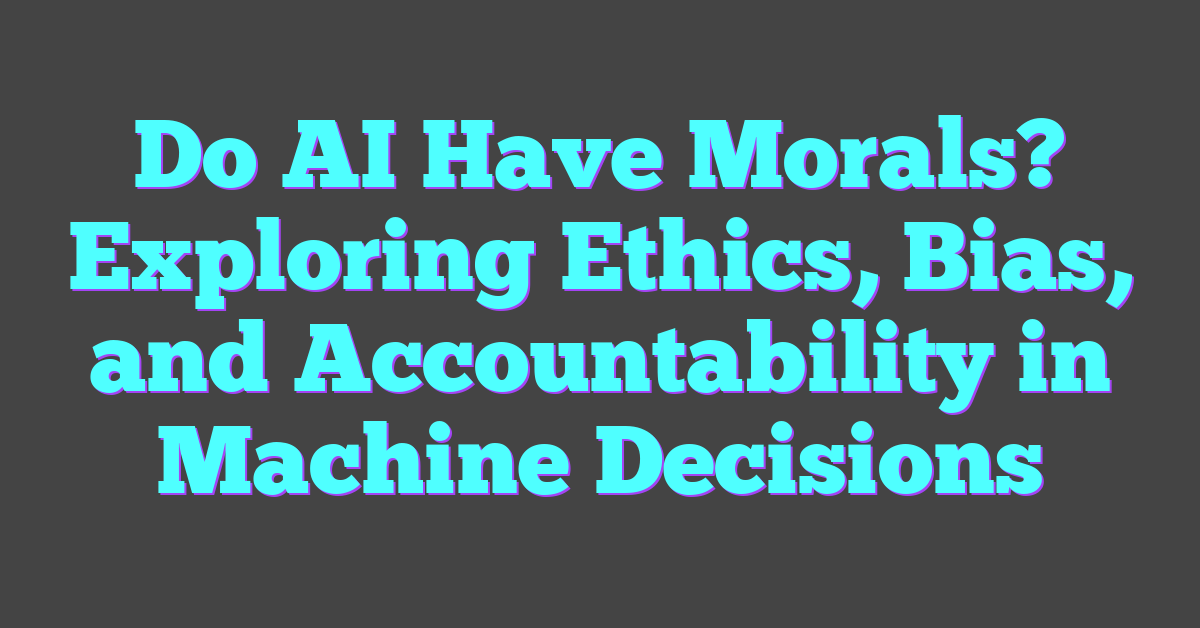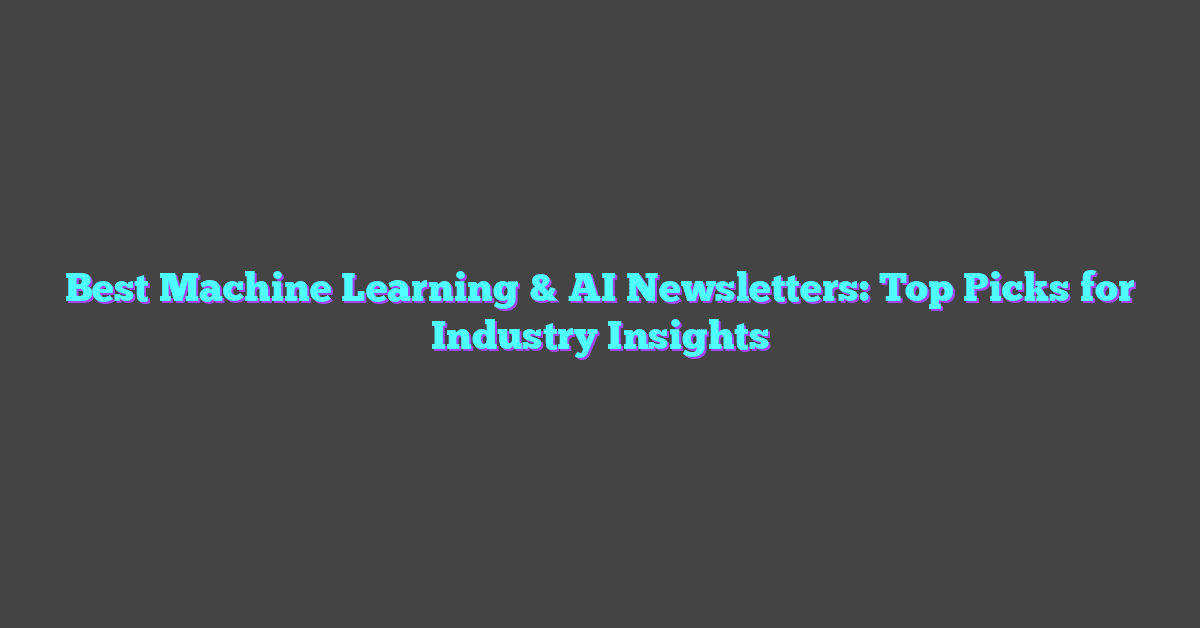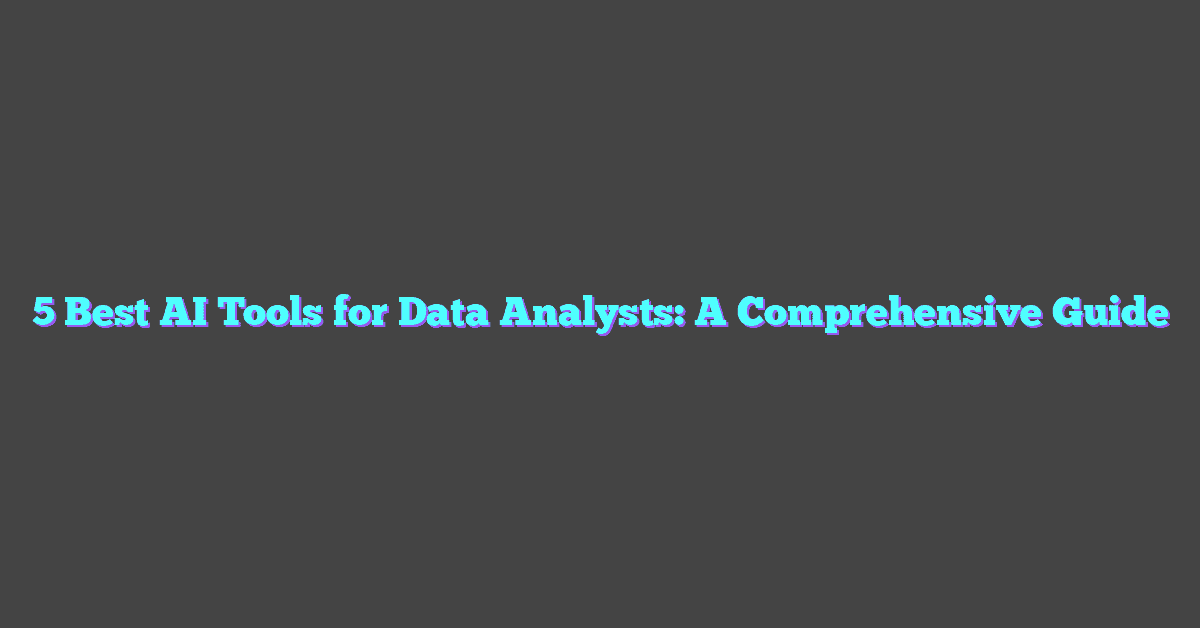In a world where technology is rapidly advancing, the question of whether AI can possess morals is more relevant than ever. As artificial intelligence becomes more integrated into daily life, from self-driving cars to virtual assistants, people can’t help but wonder if these machines can distinguish right from wrong.
AI systems are designed to process data and execute tasks with incredible precision, but can they truly understand ethical dilemmas? This article delves into the fascinating debate about AI and morality, exploring whether machines can be programmed to make moral decisions or if true morality is uniquely human.
Exploring the Concept of Morality in Artificial Intelligence
Artificial intelligence (AI) continues to evolve, raising essential questions about its capacity for moral reasoning. This section delves into defining AI and morality, and provides a historical perspective on AI and ethics.

Defining AI and Morality
Artificial Intelligence (AI) refers to machines designed to mimic human cognitive functions such as learning and problem-solving. Morality, on the other hand, denotes principles differencing right from wrong, governed by societal, cultural, or religious norms. While AI operates on algorithms and data, human morality stems from centuries of evolution and cultural development. Thus, integrating moral principles into AI systems presents challenges, as these systems lack intrinsic moral understanding.
Historical Perspective on AI and Ethics
Historically, discussions on AI and ethics gained momentum in the mid-20th century with the advent of computers. In 1950, Alan Turing’s “Computing Machinery and Intelligence” prompted notable conversations about machine cognition and ethical implications. During the late 20th century, AI ethics discussions extended to include the potential consequences of autonomous systems. By the 21st century, advancements in machine learning and deep learning renewed emphasis on embedding ethical frameworks within AI. Researchers now focus on ensuring AI systems adhere to ethical norms to avoid harmful outcomes.
The Current State of Moral AI
The Current State of Moral AI examines the progress and challenges in developing artificial intelligence with moral capabilities. Understanding the complex interplay of technology and ethics is crucial.
Can AI Systems Develop Morals?
AI systems cannot inherently develop morals as they lack consciousness and emotional experiences. Engineers program them to simulate moral decision-making through predefined rules and machine learning models that analyze ethical dilemmas. For instance, autonomous vehicles must decide on the safest course of action in potential accidents. These systems rely on vast datasets and algorithms but have no intrinsic understanding of morality.
Researchers debate the extent to which AI can possess moral reasoning. Projects like OpenAI’s GPT-3 demonstrate advanced language processing yet lack genuine moral comprehension. These systems merely reflect the biases and ethical standards inherent in their training data. Integrating stricter ethical guidelines during development can mitigate biases, but true moral capability remains unattainable for AI.
Examples of Moral Decision-Making in AI
Several examples showcase AI’s role in moral decision-making. Autonomous vehicles, for example, must choose how to respond to imminent collisions, balancing harm minimization with legal and ethical considerations. Engineers embed these decision trees with ethical frameworks such as Asimov’s Three Laws of Robotics.
Healthcare applications utilize AI for diagnoses and treatment recommendations. IBM’s Watson assists doctors by providing evidence-based suggestions, considering patient ethics like consent and privacy. However, these systems still depend on human oversight to ensure moral integrity.
These instances highlight AI’s ability to simulate moral reasoning within constraints, emphasizing ongoing human intervention in critical decision-making processes. The challenge lies in balancing AI’s practical applications with robust ethical guidelines to avoid potential misuse.
Ethical Frameworks Governing AI Development
Embedding ethical frameworks within AI ensures responsible and fair usage across various applications.
Importance of Ethical Guidelines
Ethical guidelines direct AI development, ensuring it serves humanity positively. They mitigate risks, such as biases and unfair treatment, by focusing on transparency, accountability, and fairness. For instance, the IEEE Global Initiative on Ethics of Autonomous and Intelligent Systems develops standards guiding ethical AI practices. Without these guidelines, AI systems might perpetuate existing inequalities or cause harm through unintended consequences.
Global Perspectives on AI and Morality
Different regions adopt varied approaches to AI ethics. In the EU, the High-Level Expert Group on AI outlines ethical guidelines emphasizing respect for human dignity, privacy, and autonomy. Meanwhile, the US focuses on fostering innovation with bodies like AI Now Institute advocating for ethical AI practices in tandem with technological advancement. In Asian countries like Japan, the government’s AI strategy emphasizes collaboration between humans and AI, promoting harmonious coexistence. By examining these regional perspectives, a comprehensive understanding of AI ethics becomes possible.
Future Implications and Challenges
The rapid development of artificial intelligence (AI) raises important questions about its moral capabilities and ethical implications for society.
The Role of AI in Society
AI’s integration into various sectors significantly impacts society. In healthcare, AI assists in diagnosing diseases and personalizing treatments based on patient data. Autonomous vehicles use AI for navigation and decision-making, aiming to reduce human error on the roads. In finance, AI optimizes trading strategies and detects fraudulent activities. While these applications offer substantial benefits, they also necessitate ethical considerations to prevent harm.
Concerns and Critics on AI and Morals
Critics highlight several concerns regarding AI and morals. One major issue is bias in AI algorithms, which can lead to unfair treatment in areas like hiring or law enforcement. Bias often stems from the data used to train these systems. Another challenge is accountability: when AI systems make decisions, it can be difficult to determine who is responsible for any negative outcomes. Additionally, as AI becomes more integrated into daily life, there are concerns about privacy and the potential misuse of personal data.
Addressing these concerns requires robust ethical guidelines and transparent development practices. Stakeholders must collaborate to ensure AI systems prioritize fairness, accountability, and respect for privacy.
Conclusion
AI’s role in society is expanding rapidly and with it comes the pressing need to address its moral and ethical dimensions. While AI can simulate moral decision-making, true moral understanding remains elusive. Human oversight is essential to ensure AI operates within ethical boundaries and prevents misuse. Embedding robust ethical frameworks and maintaining transparency in AI development are crucial steps toward a fair and accountable future. As global perspectives on AI ethics evolve, collaboration and continuous dialogue will be key in shaping an AI-driven world that respects and upholds human values.
Frequently Asked Questions
What is the main focus of the article?
The article explores the moral reasoning capabilities of artificial intelligence (AI) and the challenges in creating AI with genuine moral understanding, highlighting ethical considerations, biases, and the necessity for human oversight.
How do engineers program AI to make moral decisions?
Engineers use rules and machine learning models to simulate moral decision-making in AI, though this approach is limited in achieving true moral comprehension and may carry inherent biases.
Why is human oversight important in AI decision-making?
Human oversight is crucial to ensure that AI systems make fair and ethical decisions, as it helps to mitigate biases and errors that AI may inadvertently incorporate.
What are some examples of AI’s role in moral decision-making?
Examples include autonomous vehicles making split-second decisions in emergencies and AI applications in healthcare, where they assist in diagnosing illnesses and recommending treatments.
What are the ethical concerns related to AI in society?
Ethical concerns include biases in AI algorithms, accountability for AI decisions, privacy issues, and the need for robust ethical guidelines to ensure fairness, accountability, and respect for privacy.
How can ethical frameworks help prevent misuse of AI?
Embedding ethical frameworks in AI development can guide the design and application of AI systems, helping to prevent misuse and ensure that AI decisions align with societal values and ethical standards.
What are the global perspectives on AI ethics?
Different regions have varied approaches to ethical AI development, reflecting diverse cultural values and regulatory environments, which can influence the implementation and governance of AI technologies.




